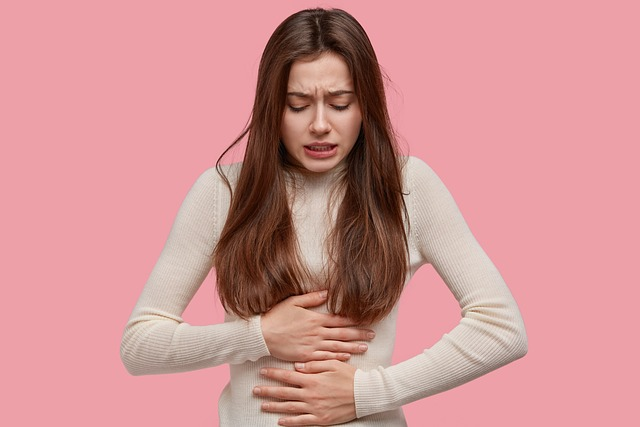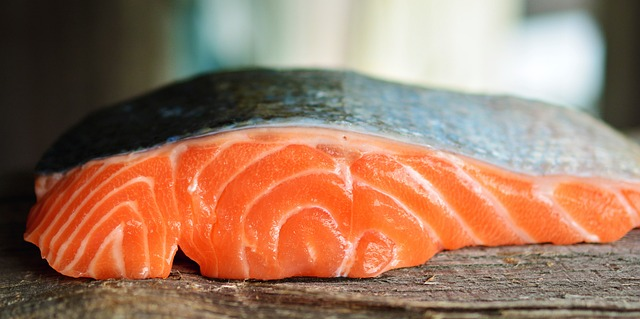Best Supplements For Endometriosis

Overview
ToggleEndometriosis affects millions of women all across the globe. However, there is still a complete lack of understanding when it comes to the disease with it often being undiagnosed or misdiagnosed. More and more attention is being given to endometriosis and, in turn, more understanding about how to help treat symptoms, pain, and healing. This can be through the use of natural supplements.
The correct nutrition and supplements can help to reduce pain, de-trigger inflammatory markers, and minimise other symptoms related to endometriosis.

 Omega-3 fatty acids are known for helping to reduce inflammation – something heavily associated with endometriosis. They play a crucial role in lowering pain caused by endometriosis.
However, omega-3 fatty acids have also been found to minimise lesions caused by endometriosis and block the production of inflammatory prostaglandins.
Most Western diets consume more omega-6 rather than omega-3 fatty acids. The former are pro-inflammatory can can increase pain caused by endometriosis. You can find omega-3 fatty acids in walnuts, tuna, and salmon. However, supplementing omega-3 as a form of natural therapy is recommended for endometriosis patients.
Omega-3 fatty acids are known for helping to reduce inflammation – something heavily associated with endometriosis. They play a crucial role in lowering pain caused by endometriosis.
However, omega-3 fatty acids have also been found to minimise lesions caused by endometriosis and block the production of inflammatory prostaglandins.
Most Western diets consume more omega-6 rather than omega-3 fatty acids. The former are pro-inflammatory can can increase pain caused by endometriosis. You can find omega-3 fatty acids in walnuts, tuna, and salmon. However, supplementing omega-3 as a form of natural therapy is recommended for endometriosis patients.
Why Supplements are Helpful for Endometriosis
Endometriosis occurs when estrogen-dependent uterine tissue forms in a place in the body where it should not have formed. This can include the pelvic region, bladder, and uterus. This extra tissue leads to severe pain, infertility, and other undesirable symptoms such as bloating, tender breasts, and even anxiety. The extra tissue causes inflammation, digestive issues, and pelvic pain. There is no definite fix for endometriosis, however, supplements can help with addressing the root cause of endometriosis, and help women with endometriosis have better periods, optimise, fertility, and have symptomless cycles. Supplements for endometriosis address what is causing hormone imbalance to help with long-term healing and sustained relief.
Best Supplements for Endometriosis
Below are recommended alternative medicines and supplements for endometriosis, helping with pain reduction and endometrial lesions.DIM
Diindolylmethane (DIM) naturally occurs in kale, cauliflower, and broccoli. The compound is found to be successful in relieving pain caused by endometriosis. DIM supports the first stage of estrogen excretion – detoxification. The production of too much estrogen causes endometrial pain, hence why talking DIM can bring pain relief and help to relieve other symptoms associated with endometriosis. Many people with endometriosis have an issue with detoxifying estrogen, and DIM encourages healthy estrogen metabolism. Taking DIM can help to reduce bloating, painful periods, tender breasts, and heavy bleeding.Omega-3 Fatty Acids
 Omega-3 fatty acids are known for helping to reduce inflammation – something heavily associated with endometriosis. They play a crucial role in lowering pain caused by endometriosis.
However, omega-3 fatty acids have also been found to minimise lesions caused by endometriosis and block the production of inflammatory prostaglandins.
Most Western diets consume more omega-6 rather than omega-3 fatty acids. The former are pro-inflammatory can can increase pain caused by endometriosis. You can find omega-3 fatty acids in walnuts, tuna, and salmon. However, supplementing omega-3 as a form of natural therapy is recommended for endometriosis patients.
Omega-3 fatty acids are known for helping to reduce inflammation – something heavily associated with endometriosis. They play a crucial role in lowering pain caused by endometriosis.
However, omega-3 fatty acids have also been found to minimise lesions caused by endometriosis and block the production of inflammatory prostaglandins.
Most Western diets consume more omega-6 rather than omega-3 fatty acids. The former are pro-inflammatory can can increase pain caused by endometriosis. You can find omega-3 fatty acids in walnuts, tuna, and salmon. However, supplementing omega-3 as a form of natural therapy is recommended for endometriosis patients.
Calcium D-Glucarate
Calcium D-Glucarate is a calcium salt that is naturally found in our bodies and certain fruits and vegetables. Similar to DIM, it aids in the detoxification of estrogen as well as helping with gut issues – a common symptom of endometriosis. Digestive issues contribute to a poor release of estrogen, thus estrogen levels rise and pain caused by endometriosis also rises. Calcium D-Glucarate helps to keep estrogen levels stable, which ultimately helps treat endometriosis-related pain. Calcium D-Glucrate is one of the highly recommended dietary supplements for endometriosis.Curcumin
Curcumin is another popular choice when it comes to supplements for endometriosis. Its anti-inflammatory properties have been known to provide pain relief. Curcumin is also antiangiogenic and antioxidant. Pain relief is one of the most important symptom relief wishes for women with endometriosis. Endometriosis-related pelvic pain has been described as aggressive and distressing. For many who want to manage endometriosis, helping to reduce period pain and chronic pelvic pain is the priority. Curcumin has also been shown to suppress the growth of endometriosis and can help with endometriosis cell death. You can find curcumin in turmeric or the form of dietary supplements.N-ACETYL CYSTEINE (NAC)
NAC is the supplement form of cysteine – an amino acid that naturally occurs in the body. Its most important function is aiding in the production of glutathione, a powerful antioxidant. Antioxidant supplementation is recommended for women with endometriosis as oxidative stress leads to inflammation. Studies found that women with endometriosis who took NAC for three months saw cyst size and growth greatly reduced. NAC also helps to improve the body’s insulin response, protect egg quality, and lower testosterone. For those with PCOS, it has been found to improve pregnancy rates and improve ovulation. For this reason, NAC is highly recommended for those with fertility worries.Magnesium
Magnesium deficiency is incredibly common, especially for those with periods as it is used more as a stress response. Endometriosis puts an intense amount of stress on the body. Magnesium supplementation helps with multiple endometriosis symptoms including helping with sleep and pain reduction. It lowers the inflammatory chemicals, prostaglandins, that are released during menstruation. Another study has also found that magnesium can relax the muscles in the pelvic region ultimately helping to reduce contractions, cramps, and pelvic pain. If pain reduction is of the utmost priority, magnesium is one of the best natural therapies for this.Vitex
Vitex, also known as chaste tree, chaste berry, or monk’s pepper has been used in natural therapies for many years, including in helping with symptoms of PMS. The essential oil components of Vitex are what have made this be used in the medical treatment of endometriosis. Vitex can decrease prolactin, allowing for the full development of corpus luteum – the organ that releases progesterone. In turn, progesterone levels increase, which helps reduce pelvic pain. Of course, while Vitex can be used as a form of medical treatment it should only be seen as a complementary and alternative medicine in conjunction with existing medical treatment of endometriosis from a healthcare provider.Milk Thistle
Milk thistle has long been used as a form of herbal medicine for women’s health, with many studies into reproductive biology, period pain, and the immune system. It is silymarin, the active component in milk thistle, that makes it a suggestion for treating endometriosis. Essentially, it reduces free radicals and supports the detoxification of the glutathione S-transferase pathway. Furthermore, silymarin helps in the process of liver detoxification, this can reduce high levels of estrogen and promote endometriosis-related pelvic pain. This is why milk thistle has long been considered a natural form of pain medication, especially for those with endometrial tissue.Vitamin C
Studies have found that vitamin C can be helpful when trying to treat endometriosis. Endometriosis causes oxidative stress markers and vitamin C offers promising results in helping to reduce those stress responses. Vitamin C is a powerful antioxidant and has anti-inflammatory characteristics which are effective in helping with endometriosis symptoms. One randomized clinical trial found that vitamin C decreased lesions and the endometrial implants showed a significant reduction. You can find combined vitamin C supplements which often include vitamin E and vitamin D supplementation, too.Vitamin B6
Another popular supplement and alternative medicine for chronic pelvic pain is vitamin B6. This vitamin is used to create red blood cells, helping in macronutrient metabolism. Vitamin B6 has been accepted by many studies in helping to treat chronic pain related to endometriosis lesions and women’s health. Vitamin B6 helps with estrogen metabolism, helping to convert it to its natural form. Vitamin B6 can be found in carrots, beef, tuna, eggs, and salmon. It can also be found in supplementation form alongside vitamins C and D. These vitamins are evidence-based complementary and alternative medicine for endometriosis.What Are the Benefits of Natural Supplements for Endometriosis Compared to Traditional Supplements?
When it comes to managing endometriosis, the best natural supplements for endometriosis management offer a range of benefits compared to traditional supplements. Natural supplements can help reduce inflammation, alleviate pain, and regulate hormone levels without the potential side effects of synthetic alternatives.
